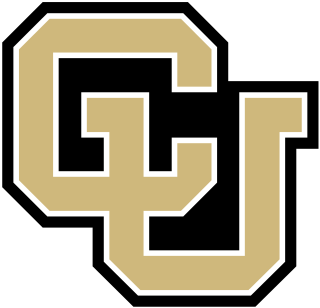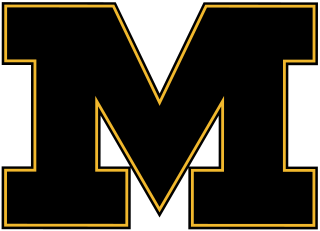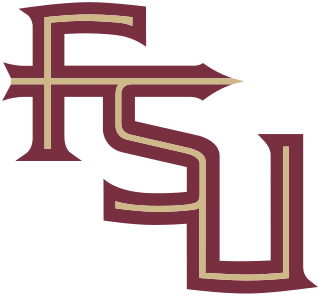
The Miami Hurricanes football team represents the University of Miami in college football. The Hurricanes compete in the National Collegiate Athletic Association (NCAA) Division I Football Bowl Subdivision and the Coastal Division of the Atlantic Coast Conference (ACC). The program began in 1926 and has won five AP national championships in 1983, 1987, 1989, 1991, and 2001.

Zachary William Taylor is an American football coach who is the head coach for the Cincinnati Bengals of the National Football League (NFL). Beginning his NFL career as an offensive assistant, he was the quarterbacks coach for the Los Angeles Rams when they made a Super Bowl appearance in Super Bowl LIII. Taylor was named Cincinnati's head coach the following season in 2019, where he went 6–25–1 in his first two years. In 2021, he led the Bengals to their first playoff win since 1990, ending the longest active drought in the four major North American sports, en route to an appearance in Super Bowl LVI. He followed this up with 12 wins and a trip to the Conference championship game in 2022. In his time with the Bengals, Taylor has won 5 postseason games, the same amount won by the team in their entire history prior to hiring him as their head coach.
The 1994 NCAA Division I-A football season, play of college football in the United States at the NCAA Division I-A level, began in August 1994 and ended on January 2, 1995. Nebraska, who finished the season undefeated, ended the year ranked No. 1 in both the Associated Press and Coaches polls. This was the first national championship of coach Tom Osborne's career at Nebraska, having come close the year before, when Nebraska lost to eventual national champion Florida State on a missed field goal as time expired.
The 1996 NCAA Division I-A football season ended with the Florida Gators being crowned National Champions after defeating rival Florida State in the Sugar Bowl, which was the season's designated Bowl Alliance national championship game. Florida had faced Florida State earlier in the year, when they were ranked No. 1 and No. 2, and lost 24–21. However, unranked Texas's upset of No. 3 Nebraska in the first ever Big 12 Championship Game set up the rematch of in-state rivals in New Orleans. In the Sugar Bowl, Florida's Heisman Trophy-winning senior quarterback Danny Wuerffel and head coach Steve Spurrier led the Gators to a 52–20 victory and their first national championship.

The 2000 NCAA Division I-A football season ended with the Oklahoma Sooners beating the defending national champion Florida State Seminoles to claim the Sooners' seventh national championship and their thirty-seventh conference championship, the first of each since the departure of head coach Barry Switzer.

The 2001 NCAA Division I-A football season was the first college football season of the 21st century. It ended with the University of Miami winning the national title for the fifth time.
The 1983 NCAA Division I-A football season ended with the University of Miami, led by Bernie Kosar, winning their first national championship over perennial power and top ranked Nebraska in the Orange Bowl.

The Colorado Buffaloes football program represents the University of Colorado Boulder in college football at the NCAA Division I FBS level. The team is a member of the Pac-12 Conference, having previously been a charter member of the Big 12 Conference, and will rejoin the Big 12 beginning in the 2024 season. Before joining the Big 12, they were members of the Big Eight Conference. The CU football team has played at Folsom Field since 1924. The Buffs all-time record is 716–520–36 as of the 2022 season. Colorado won the 1990 National Championship. The football program is 27th on the all-time win list and 40th in all-time winning percentage.
The 1984 Orange Bowl was the 50th edition of the college football bowl game, played at the Orange Bowl in Miami, Florida, on Monday, January 2. Part of the 1983–84 bowl game season, it matched the undefeated and top-ranked Nebraska Cornhuskers of the Big Eight Conference and the No. 5 independent Miami Hurricanes. The game is famous for a coaching call by Nebraska's Tom Osborne after a touchdown late in the fourth quarter, where instead of playing for a tie with an extra point kick the Cornhuskers went for a two-point conversion to try to take the lead.
Notre Dame Fighting Irish football rivalries refers to rivalries of the University of Notre Dame in the sport of college football. Because the Notre Dame Fighting Irish are independent of a football conference, they play a national schedule, which annually includes historic rivals University of Southern California and Navy, more recent rival Stanford, and five games with ACC teams.
The 1995 Orange Bowl was a college football bowl game played on January 1, 1995, as the 61st edition of the Orange Bowl and the national championship game for the 1994 season. It featured the Nebraska Cornhuskers of the Big Eight and the Miami Hurricanes of the Big East. The game was a rematch of the historic 1984 Orange Bowl. As of 2020, the 1995 Orange Bowl holds the record for Orange Bowl attendance at 81,753.

The Missouri–Nebraska football rivalry was an American college football rivalry between the Missouri Tigers and Nebraska Cornhuskers. The rivalry was the second oldest in the Big 12 Conference and third oldest west of the Mississippi River. However, it ended following the 2010 game, when Nebraska and Missouri met in league play for the last time prior to Nebraska's 2011 move to the Big Ten Conference. In November 2011, Missouri announced that it would join the Southeastern Conference in July 2012.

The Florida State–Miami football rivalry is an American college football rivalry between the Florida State Seminoles football team of Florida State University and Miami Hurricanes football team of the University of Miami. Since the late 1980s, one or both squads have been highly ranked entering the game, adding national championship implications to an already heated rivalry. Kicks have played an important role in the series with many wide right, wide left, blocks and other mistakes occurring with the game in the balance. Miami leads the series 35-32 through the 2022 season.

The Arkansas–Texas A&M football rivalry is an American college football rivalry between the Arkansas Razorbacks and Texas A&M Aggies, which started in 1903. Between 1992 and 2008, the schools did not play each other when Arkansas left the Southwest Conference to join the Southeastern Conference. The rivalry was renewed as a neutral-site out-of-conference contest in 2009; in 2012 it once again became a conference rivalry when Texas A&M also joined the Southeastern Conference. Arkansas leads the series 42–35–3.
The 1979 Orange Bowl was the 45th edition of the college football bowl game, played at the Orange Bowl in Miami, Florida, on Monday, January 1. Part of the 1978–79 bowl game season, it matched the fourth-ranked Oklahoma Sooners and #6 Nebraska Cornhuskers, both of the Big Eight Conference.

The Colorado–Nebraska football rivalry is an American college football rivalry between the Colorado Buffaloes and Nebraska Cornhuskers. The teams first played in 1898, and began competing annually as conference opponents in 1948. The rivalry intensified in the 1980s as Colorado improved under head coach Bill McCartney, reaching its peak in the 1990s with several top-ten meetings. Conference realignment placed the teams in the same division, where they continued to meet annually through 2010, after which Colorado moved to the Pac-10 and Nebraska moved to the Big Ten.

The Nebraska–Oklahoma football rivalry is an American college football rivalry between the Nebraska Cornhuskers football team of the University of Nebraska and Oklahoma Sooners football team of the University of Oklahoma. The rivalry continued in the Big 12 Conference until 2010, though the rivalry was more prominent when both teams were members of the former Big Eight Conference before 1996. The annual series effectively ended when Oklahoma was lined up in the Southern division of the newly formed Big 12 to maintain its rivalry with Texas and also its recruiting hotbeds in Texas. As both teams won their respective divisions in 2010, they met in the 2010 Big 12 Championship Game. Following the 2010 season, Nebraska left the Big 12 for the Big Ten Conference. As a result, the 2009 meeting turned out to be the last regular-season scheduled meeting. Nebraska's departure left the future of the rivalry in doubt. The two teams agreed to play a home-and-home non-conference series scheduled for 2021 in Norman and 2022 in Lincoln. Additional games have also been scheduled for 2029 and 2030.
The 1970 Nebraska Cornhuskers football team represented the University of Nebraska–Lincoln in the 1970 NCAA University Division football season. The team was coached by Bob Devaney and played their home games in Memorial Stadium in Lincoln. The Huskers went 11–0–1 to win the first of two consecutive national championships.
The 1992 Orange Bowl was the 58th edition of the college football bowl game, played at the Orange Bowl in Miami, Florida, on January 1. Part of the 1991–92 bowl game season, it matched the top-ranked Miami Hurricanes of the Big East Conference and the #11 Nebraska Cornhuskers of the Big Eight Conference. Favored Miami won 22–0.

The Miami–Virginia Tech football rivalry is an American college football rivalry between the Miami Hurricanes of the University of Miami and Virginia Tech Hokies of Virginia Tech. As of 2022, Miami leads the series 24–15.











